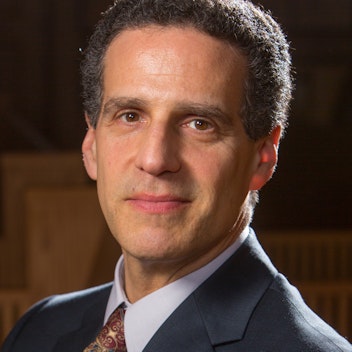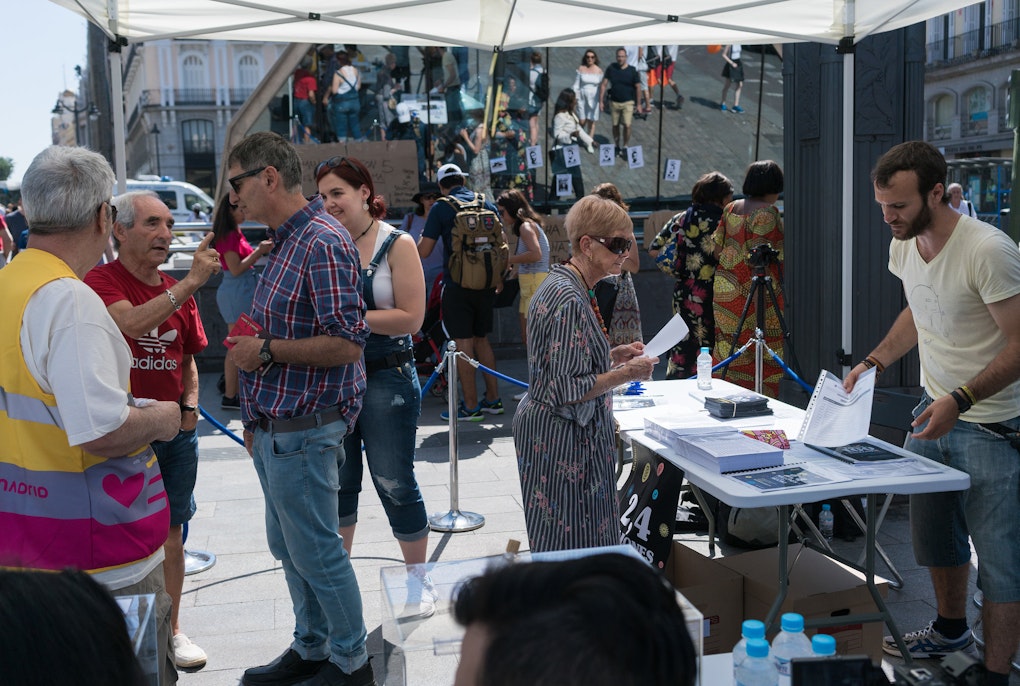
Unpuzzling Paraguay: politics, drug trafficking, indigenist and land struggles
 Mattia Bottino
Mattia Bottino‘One size fits all’ – a phrase that describes the default position that is often taken in many parts of the world, by either classic dualist governments or three-tiered governments, when it comes to local governmental competences. This approach wrongly limits the growth and development of local governments in the face of growing differences and demands of population shifts (overpopulation and depopulation) and urbanisation as a result. The growing urban-rural divide calls for local governments to be given greater choice so as to respond to the challenges faced at a local level. And in many cases, the answers to these calls or instructions on how to answer these calls, emanate from national constitutions. This certainly is the case in South Africa.
Before I continue: the use of local governments here refers to metropolitan municipalities or cities (metros), as they’re called in South Africa and Italy. Metros exhibit urban characteristics, whilst districts, locals, municipalities and provinces exhibit mostly rural characteristics. The focus on metros, to the exclusion of local and district municipalities in South Africa, and municipalities and provinces in Italy, is due to the fact that metros have established themselves as strong entities, with strong economic viability, economies of scale, population sizes that enable them to leverage financial gains but which equally burden the metros due to increased demands for services. If there is a type of local government that can lobby for additional powers (and have a good chance of succeeding in the lobby), it’s metros. This is a worthy observation to make, highlighting the essence of what the EU H2020 Rise project, LoGov, is about.
South African metros have a high appetite for the devolution of additional powers to those metros capable of handling additional responsibilities. Their quest is directed at functions such as public transport, energy (electricity), and housing to name a few, which originally lie in the domain of national and provincial governments. I, therefore, decided to look at the case of Italy and whether the metros have the same appetite for additional powers, as well as whether there is an enabling environment that allows the appetite to be fed. This, of course, draws comparisons with the South African case. In case you’re asking yourself why the focus on South Africa and Italy, well because I’m a South African national, currently on secondment at Eurac Research in Italy as part of the LoGov project. But also, because the LoGov programme is centred on comparative practices concerning urban-rural challenges in countries exhibiting a federal characteristic, and the chosen countries fall into this category.
The powers and functions or responsibilities of local government are entrenched in the South African Constitution1 and further cemented in the Local Government: Municipal Structures Act 2000 which sets out the division of the functions, district and local municipalities. Metros are empowered to exercise all the powers set out in the Constitution. The enumeration of ‘original’ local government powers provides a layer of protection to local governments in the form of guaranteed responsibilities that national and provincial governments are prohibited from tampering with (and yes, they have tried!). In spite of this, the symmetrical distribution of these original powers runs the risk of constraining big metropolitan cities that are capable of, and want to do, more.
The South African Constitution provides three provisions that empower the national and provincial governments to transfer additional responsibilities to metros: through assignments, delegations or agency agreements. Executive organs of state in either the national or provincial governments are empowered to delegate any of their functions to metros on a delegation or agency basis (s238 South African Constitution). The Constitution also empowers national and provincial governments to assign legislative (ss44(1) and 104 South African Constitution), as well as executive powers (ss99 and 126, read with s156(4) South African Constitution) to metros. Although missing a detailed legislative framework, national and provincial government tend to lean towards delegations as a means to ‘transfer’ additional powers to metros, although this renders metros as mere implementors without any policy-making powers and often delivers insufficient protection from unfunded mandates. This is in stark contrast to executive assignments, especially those falling under section 156(4) of the Constitution (compulsory executive assignment), that provide a detailed framework on the process of the assignment, protection from unfunded mandates, attached law-making powers and controlled supervision by the assigning government.
The provisions on executive assignment, especially the compulsory executive assignment, are by far the biggest indication that although the enumeration of original powers was meant to solidify local government’s position and role as an autonomous sphere in the multilevel governance of South Africa, the drafters of the Constitution left room for local government to grow and not be inhibited from doing so. In fact, executive assignments in terms of section 156(4) of the Constitution are an instruction to national and provincial governments to devolve additional responsibilities to metros. Metros can therefore take national or provincial government to court to ‘claim’ additional functions because there’s a constitutional instruction that deems the assignment mandatory where the prerequisites in the section are met. There have been no cases invoking section 156(4) of the Constitution specifically to date (the City of Cape Town missed the opportunity to use the section in the case of City of Cape Town v National Energy Regulator of South Africa (2020), where it sought to challenge the Electricity Regulation Act and the prohibition placed on municipalities to directly procure electricity from Independent Power Producers without a determination from the Minister of Energy). However, the jurisprudence of the courts in cases involving access to housing and how those decisions led to the devolution of parts of the housing function to municipalities, in spite of ‘housing’ being a national and provincial government competence, are an indication of how the courts undertake judicial review and interpretative exercises in cases involving municipal responsibilities, the infringement of rights and the failure of the State (including municipalities) to fulfil the enjoyment of particular rights.
As such, the South African process says metros should build capacity then, once the necessary capacity exists, and metros want additional responsibilities that lie within national or provincial governments’ domain, they should be given additional responsibilities, especially where functionality arguments favour metros.
Metropolitan cities in Italy also have an appetite for additional responsibilities. The prevalence of uniformity between local governments in Italy and many other European countries, is coming under increasing pressure as a result of metros claiming more competences, as well as a special status. 2 In contrast to South Africa, local governments’ fundamental powers and functions are entrenched in the Italian Constitution (albeit weakly under Art 114 Italian Constitution), however, the determination of what these powers and functions actually are, falls strongly within the exclusive legislative competence of national government for ordinary regions (Art 117(2) Italian Constitution). And for the five special regions (Friuli-Venezia Giulia, Sicily, Sardinia, Trentino-Alto Adige and Aosta Valley), the determination is regulated through regional law in harmony with the Constitution and general principles of the legal order.3 As for metros, legislation adopted by the national parliament, that is the so-called “Delrio Law” no 56/2014 established metros as special cities and generally sets out their responsibilities. However, it does leave room for regions to make decisions regarding the actual implementation of the directions in the Delrio Law. 4
In line with the principle of subsidiarity, administrative functions are attributed to municipalities and only where they are unable to perform the function (effectively), the function may be assigned upwards to metros (Art 118(1) Italian Constitution). As such, metros undertake administrative functions of their own, as well as the functions assigned to them by national or regional legislation (Art 118(2) Italian Constitution). Metros also have regulatory powers as to the organization and implementation of the functions attributed to them (Art 117(7) Italian Constitution). In light of the above, what would constitute ‘original’ functions? And, in this instance are the functions that national and/or regional governments allocate to metros explicitly in legislation? It could be said that whatever functions that remain from/after national government’s enumerated functions are available ‘for the taking’ by metros as ‘residual’ functions. Then follows the administrative functions that were initially exercised by municipalities but are ascended to metros where municipalities fail to perform the functions efficiently, which can be understood as ‘additional’ functions given to a metro. And lastly, there are delegated functions that the national or regional governments may ‘transfer’ to metros to perform on their behalf. As such, aside from the pool of leftover functions to ‘choose from’, there appears to be a limit placed on metros – they are prohibited from reaching into national government’s enumerated functions.
The aforementioned provisions suggest that the decision to decentralize or devolve responsibilities to metros thus lies with the national or regional governments. And because no specific provision instructs transfers from national or regional governments to metros (mandatory or otherwise), the metros cannot take the national or regional governments to court to claim additional responsibilities. Instead, the national and regional governments can go to court to defend their competences in cases where they may be encroached upon by local government entirely or metros specifically (Art 134 of the Constitution).
As such, the Italian process says metros can build capacity by actually performing the leftover functions from the national government but no aspirations can be levelled for the functions enumerated as national functions (as it is assumed their hands are already full with the leftover functions).
Local governments are not one size, which makes it bizarre to have a ‘one size fits all’ approach to their local competences. At face value, South Africa appears to adopt the ultra vires principle, which seems to prevent metros from exercising any function that lies outside their domain and/or has ties to the betterment or social and developmental needs of their communities. However, a wholistic reading of section 156(1), sections 99 and 126 together with section 156(4) of the Constitution removes the limitation and provides a space for metros to exercise or perform more functions than those bestowed upon them in the Constitution. This space may even equal to, or be wider or more flexible than that given by the general competence clause, in cases where the general competence clause leaves insufficient or irrelevant functions for metros to ‘pick from’. Instead of waiting for national or provincial governments to delegate additional functions, which burden metros with the actual implementation whilst the controlling power and finances remain with the delegating government, metros should instead use compulsory executive assignments. A compulsory executive assignment(s156(4) SA Constitution) is an instruction, as opposed to an option, that has to be carried out thus giving metros political and judicial ‘ammunition’ when claiming additional functions.
At face value, Italy’s adoption of the general competence principle appears to grant a wide range of responsibilities for municipalities to choose from, almost like ‘a kid in a candy store’ …only in this case instead of candy, there are functions. Italy’s adoption of the general competence principle does not, however, guarantee an automatic and full devolution of responsibilities that relate to municipalities. General competence implies wide discretion and a wide pool of responsibilities for municipalities to choose from, however, this is based on the number of responsibilities national government explicitly allocates to itself. Where national government allocates more functions for itself (which is usually the case), this leaves less for municipalities and thus the openness of general competence actually has a limiting effect. Furthermore, the general competence does not extend to metros, unless the functions initially taken by municipalities in exercising their general competence are attributed to a metro. This is supposed to prevent an overlap of responsibilities but also results in the limiting effect referred to above, which by extension is felt by metros as it results in less and less functions for metros to vie for as additional responsibilities. 5 Short of the ‘leftover’ functions, metros are prohibited from venturing into national government’s territory of enumerated functions, unless national government delegates the administration of its enumerated functions to metros. But as argued in South Africa’s case, delegations render metros powerless as they are mere policy-takers in that position and must adhere to the instructions of national government in the implementation of the delegated functions. This is not a favourable position!
Ultimately, although we’d like all governments to have equal rights and resources, some local governments are more equal than others. That unfortunately is the case of the urban-rural interplay. In as much as we’d like for rural based local governments to strive and succeed at an equal pace as their urban counterparts, we cannot stifle the growth and development of urban local governments, particularly metros, for the sake of maintaining ‘false equality’ of local governments. We have to enable and support innovative and ambitious moves by metros that want to do more and are able to do more. On the other side the scale, rural based local governments that are struggling to fulfil their responsibilities should not be left to their own devices – they should be given more support through financial assistance, capacity building initiatives, supervision and collaborative programmes between rural and urban, as well as with national and provincial governments where needed, to lessen the gap between metros and rural local governments. This starts with embracing the provisions in the national constitutions that allow this flexibility. The transfer of additional responsibilities to metros is provided for and, one may argue, encouraged by the constitutional frameworks in both South Africa and Italy. However, this is not translating into actual transfers, begging the question: what really is the problem?

This content is licensed under a Creative Commons Attribution 4.0 International license.


This research is part of the LoGov project. The project has received funding from the European Union‘s Horizon 2020 research and innovation programme under Grant Agreement No 823961.

 Mattia Bottino
Mattia Bottino
 James A. Gardner
James A. Gardner
 Erika Schläppi
Erika Schläppi